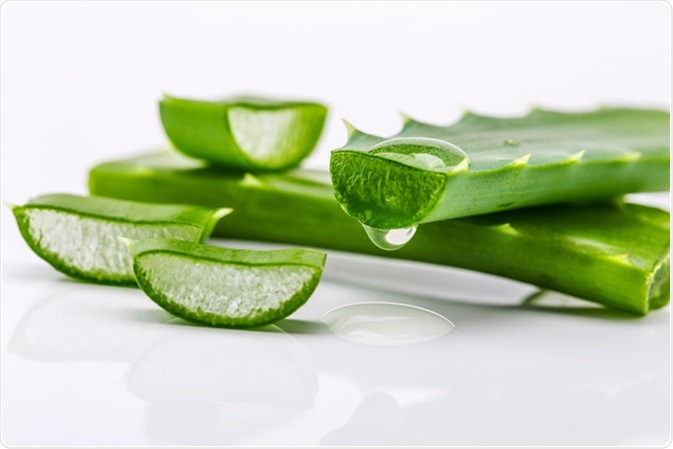Skin-healthy foods
Here are some foods that have been acknowledged by research as being skin-healthy.
Mangoes contain compounds with antioxidant properties. These compounds help to protect components of the skin, such as collagen.
Tomatoes have skin cancer-prevention benefits. One study in mice revealed that daily tomato consumption decreased the development of skin cancer tumors by 50 percent after UV light exposure.
Consuming tomatoes on a daily basis may help to protect against skin cancer.
Research has shown that incorporating tomato paste into your meals may help to protect against sunburn. After 10 weeks, people who consumed 40 grams of tomato paste per day had 40 percent less sunburn than the control group.
Lycopene, the pigment responsible for giving tomatoes their deep red color, is thought to play a role in the protective effect of tomatoes against UV damage.
Olive oil is associated with a lower risk of severe facial photoaging — that is, cumulative damage to the skin that includes wrinkles, dark spots, and discoloration, which result from long-term sunlight exposure.
Cocoa flavanols found in dark chocolate may improve the structure and function of skin. Scientists discovered that cocoa flavanols decreased roughness and scaling on skin, increased skin hydration, and helped to support the skin’s defenses against damage from UV rays.

Green tea has been tied to many skin benefits. Compounds found in green tea called polyphenols rejuvenate dying skin cells, which suggests that they may be useful for healing wounds or certain skin conditions.
It has shown promising results as a potential treatment for skin conditions such as psoriasis and dandruff. Patches of dry, flaky, and red skin often feature in these conditions — usually as a result of inflammation and the overproduction of skin cells. Green tea may slow down the production of skin cells and suppress inflammation.
White tea has anti-cancer and anti-aging properties. One study indicates that some ingredients in white tea may protect the skin from oxidative stress and immune cell damage.
Kale is one of the best sources of lutein and zeaxanthin. Lutein and zeaxanthin may protect against light-induced skin damage, especially from UV rays.
Omega-3 found in oily fish, walnuts, and pumpkin seeds or oils such as linseed oil and corn oil may prevent dryness and scaling of the skin.
Soy may help to improve crow’s feet skin wrinkles that appear at the outer corner of the eyes in menopausal women.
Never rely on foods to protect you from the sun. To protect yourself from sun exposure, always use sunscreen with an SPF of at least 15, seek shade between the hours of 10 a.m. and 2 p.m., and wear clothing that covers your skin and a wide-brimmed hat.
Calorie restriction diet
Research has demonstrated in mice that reducing calorie intake slows down the cellular aging process. This finding could prove to be an anti-aging strategy to test in humans in the future.
Scientists found that reducing the number of calories consumed by 35 percent had an impact on aging inside a cell. Cutting calories caused the cell’s protein makers, called ribosomes, to slow down, and the aging process also to decelerate.
This decreased speed not only lowered the production of ribosomes, but it also gave them time to repair themselves and keep the entire body functioning well.
Other early research has shown that allantoin — a compound found in many anti-aging face creams — mimics the effect of calorie restriction diets and increases lifespan by more than 20 percent. The elixir of life could be hiding in your bathroom cabinet.
Unfortunately, this research has so far only been conducted in worms. It may, however, eventually pave the way for new longevity pathways to explore in humans.
-
Keep stress in check
Have you ever noticed that right before an important event, an unsightly pimple appears on your face? Well, scientists have identified some links between stress levels and skin problems.
In a study of college students, those who experienced high stress levels were more likely to experience skin issues
-
Keep moisture in the skin
Skin moisturizers keep the top layer of skin cells hydrated and seal in moisture. Moisturizers often contain humectants to attract moisture, occlusive agents to retain moisture in the skin, and emollients to smooth the spaces between skin cells.
The American Academy of Dermatology recommends the following ways to keep moisture in and prevent dry, red, and itchy skin:
Moisturize your skin immediately after getting out of the shower to lock in moisture.
Take one 5- to 10-minute shower or bath per day. Excessive washing can strip away the oily layer of the skin and dry it out.

Use warm water instead of hot water.
Minimize the use of harsh soaps. Use a gentle and fragrance-free cleanser.
Stay away from abrasive scrub brushes, bath sponges, and washcloths that can damage the skin’s surface.
Pat skin gently dry with a towel.
Moisturize immediately after washing. To trap in moisture, ointments, lotions, and creams need to be applied within minutes of drying off.
Use ointments or creams rather than lotions in order to minimize irritation.
Never scratch the skin. Cold compresses and moisturizers should help to control itching.
Wear non-irritating clothes. When wearing clothing made from wool or other rough materials, wear silk or cotton underneath.


